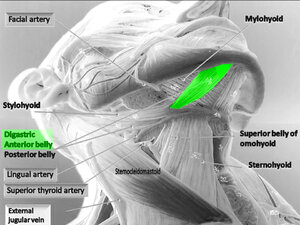MattR
Member
- May 16, 2019
- 74
- Tinnitus Since
- 2014: Mild Hyperacusis 2019: More severe
- Cause of Tinnitus
- Loud headphones, more recently Acoustic Shock
Not only that but upon further research it's not uncommon for it to last that short a period of time the first injection.
"With the first several injections pain relief may only be noted for several hours to several days. During this time, you may experience partial relief or full relief."
https://discover-cpc.com/pain-management/patient-education-information/stellate-ganglion-blocks/
Exactly, just because it did not work very well initially doesn't mean you shouldn't try a couple more injections. If you have any sort of relief, even for a few hours, it likely DID work like it was supposed to. By the 5th injection, the patient in Myriam's paper had a month of relief.

 Member
Member
